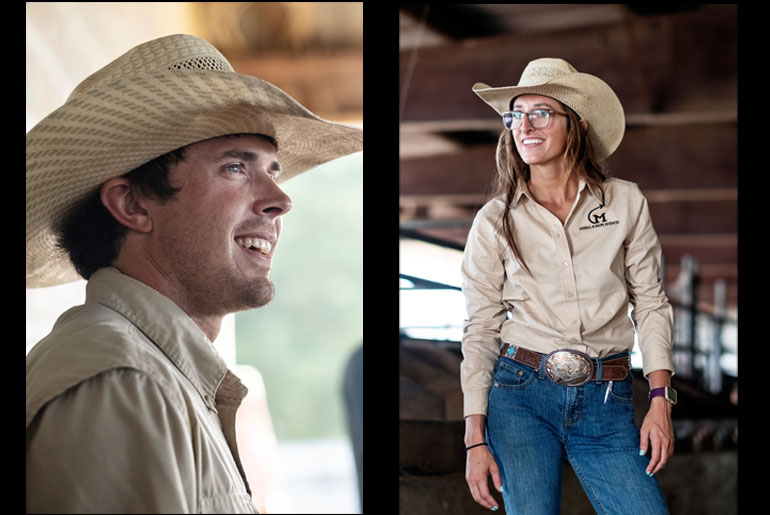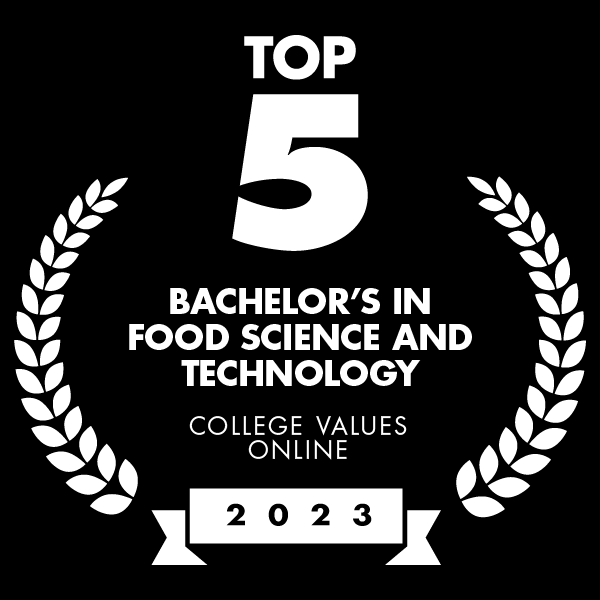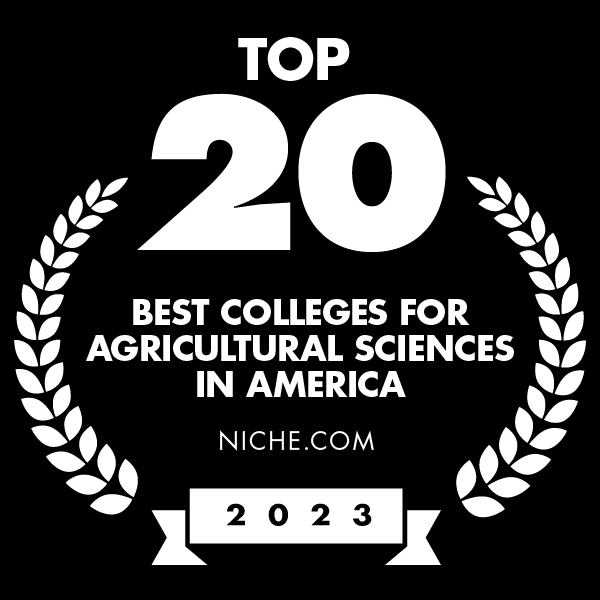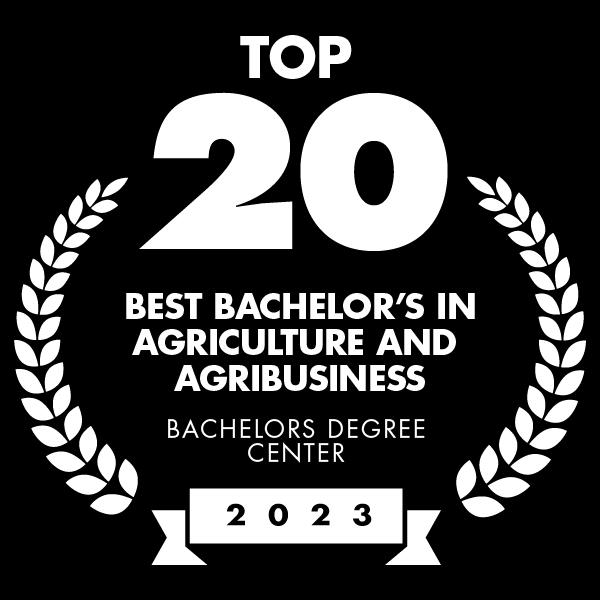The information presented on this page may be dated. It may refer to situations which have changed or people who are no longer affiliated with the university. It is archived as part of Mississippi State University's history.
Herd Mentality: MAFES Beef Unit herdsmen put cattle first
Author: Vanessa Beeson

Bryan Carter and Sarah Montgomery (Photo by Megan Bean)
Every day, Mississippi State staff and students inspect 600 acres of MSU's South Farm and tend its cattle herds before most have brewed the day's first cup of coffee.
These "campus cowboys" are responsible for the health and safety of approximately 500 head of cattle that make up the Starkville campus herd, which is part of the MSU Beef Unit. This research group provides meaningful advances for an industry that brought $261 million to Mississippi in 2020.
Bryan Carter and Sarah Montgomery are assistant herders for the MSU Beef Unit. They work with William White, facilities coordinator of the Mississippi Agricultural and Forestry Experiment Station's (MAFES) Foundation Herds.
The herds allow MSU scientists to study everything from using precision technology—remote sensing and GPS—to aid in heifer development to determining best practices for raising locally sourced farm-to-consumer beef to antibiotic resistance in calves and much more.
The herdsmen hail from as far away as Oregon and Ohio and, in addition to their role as staff, they are both pursuing advanced degrees in the Department of Animal and Dairy Sciences. Carter is working on a master's studying cattle reproduction while Montgomery is getting a doctoral degree evaluating how precision technology can be used to aid heifer development.
While every day is different, they're responsible for feeding and caring for the animals, which includes cattle and sheep and occasionally pigs and goats.
"Generally we start at 7 a.m., feeding and checking the animals in the pasture to make sure everyone is okay. After that, we have a list of things we have to get done, whether that's putting out mineral, cleaning the barn, or mending a break in the fence," Montgomery said. "Every day is different, and we really enjoy it. Just being able to learn in this type of environment makes it really fun. There's never a dull moment."
She said her favorite aspect of the job is the research.
"We get to experience the research projects firsthand and learn and build on that," she said.
The Youngstown, Ohio native graduated with a bachelor's in ag science production from University of Tennessee at Martin and came to MSU for her master's, which she earned in the Department of Plant and Soil Sciences in 2016, comparing the effects of diploid and tetraploid annual ryegrass varieties on herbage mass, nutritive value, and cattle performance. She's now evaluating precision technology data obtained from heifers to observe grazing movement as forage changes throughout the grazing season. She is under the direction of Drs. Brandi Karisch and Jane Parish with an anticipated graduation date of 2023.
Toward the end of her master's and at the start of her Ph.D., she worked as a research technician at the MAFES Prairie Research Unit. She appreciates having the perspective of both that experience and working at the Beef Unit at the MAFES H.H. Leveck Animal Research Center, also known as South Farm.
"Overall, we're focused on herd health. We work cattle in a low stress manner and are attentive to the needs of the herd," she said. "I'm grateful for the experience and would love to run an experiment station one day."
Montgomery and Carter train student workers and interns who work the farm.
"The student workers who want to be campus cowboys need to have experience and part of the interview is taking them out in the field and evaluating how they handle the cows and how they work as part of the team," Montgomery said. "Once hired, they work alongside us until we're confident they can manage cattle properly on their own."
Montgomery noted that the unit also offers internships for those with less experience who want to get a feel for life on the farm.
"Our interns are just getting their foot in the door. They can work here, the MAFES Horse Unit, or the MAFES Bearden Dairy Research Center," she said.
Carter said training the students is something he enjoys.
"We show them how to handle cattle, how to sort the animals, and read what an animal's needs might be," Carter said. "We teach them how to care for the animals without stressing those animals out."
The Townsend, Oregon native has always had an affinity for cattle.
"I like raising good cattle and I love to see them raised right," he said.
He remembers spending summers on his grandparents' wheat farm and when it came time for college, he chose Oregon State University in Corvallis because it had one of the region's strongest agricultural programs. After earning his undergraduate degree in agriculture in 2015, he rodeoed as a bull rider before moving to Alabama to work at a Black Angus seed stock ranch.
When his wife decided to finish her undergraduate degree at MSU, he worked at the Brooksville stockyard, running sale barn stockers before taking a job in Missouri performing embryo work in cattle across the Southeast.
"I wanted to spend more time with my wife, who is now in her fourth year of vet school at MSU, so I came down here and took this job," he said.
Carter is pursuing a master's degree under the direction of Dr. Jamie Larson, simulating recipients in embryo transfer and studying if an increase in progesterone leads to increased pregnancy rates.
He appreciates the interaction with the vet school that the Beef Unit affords.
"One of the cool things is having the vet school right here. On a production ranch, vets will administer care; here we get to learn what they are doing and why," he said.
Carter said different seasons present different challenges.
"In the spring and fall, when the cows are ready to calve we try to check them five or six times a day to make sure that calves are delivered safely. During the heat of the summer, you can only move, work, and feed cattle in early morning or late evening so it's a challenge to get it all done," he said.
Still the herdsman are dedicated to their work, always on call working with White, the facilities manager, and others to ensure the animals always come first.
"We try to rotate since someone has to be here every day. Rain or shine, seven days a week, we're here tending the herd and making sure the cows have what they need," Carter said.
Date: 2022-03-16




